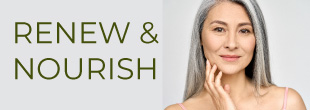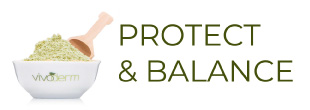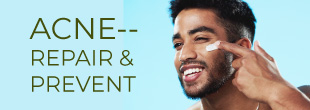Healthy Diet, Healthy Skin
By: Van Le
The saying “you are what you eat” didn’t happen by accident. More Americans are realizing that what we put in our bodies dictates how well we think, look and feel. Eating is the body’s way of obtaining the nutrition and vitamins required in order for the body to function properly. Consuming the right kind of food can increase our energy level, lead to healthier-looking skin, and boost our self-confidence. Americans spend billions of dollars each year on beauty products that promise to hide blemishes, cover under-eye circles, and conceal wrinkles; however, these products only temporarily fix what’s on the outside. In order to have truly healthy skin, we must monitor our food intake and eat food that allows our body to naturally generate that coveted healthy glow.
Water: Everyone knows that we should drink at least eight 8-ounce glasses of water each day, but not everyone does. Seventy percent of the body is comprised of water, which is vital to cellular replenishment.. Water also helps flush bodily toxins and regulate our body temperature. Try to limit caffeine and alcohol intake, as they can lead to dehydration and cause dull, dry skin. If you think water is too plain, try adding lemon slices or cucumber for a hint of taste.
Low-fat dairy products: Milk, low-fat yogurt, and low-fat cheese all contain vitamin A, a key ingredient in most anti-aging, anti-acne and anti-wrinkle products. Vitamin A strengthens the skin, helps repair and restoration processes and prevents wrinkles. The recent frozen yogurt craze has helped increase consumption of dairy products, however, it is important to remember that a cup of yogurt topped with candy, caramel, and other processed sugary treats can be counterproductive. Instead, choose healthier fresh fruit toppings such as blueberries and strawberries.
Antioxidants: Fruits like berries and pomegranates are filled with antioxidants, which have been proven to protect the skin against UV damage such as wrinkles and dark spots. They also protect the skin from free radicals, which are organic molecules responsible for tissue damage and aging. According to antioxidantskincare.org, “when free radicals attack healthy skin cells, they cause the cell to decay,” which can lead to cancer, cardiovascular disease and speed up aging. Antioxidants neutralize the production of free radicals.
Omega 3: Walnuts, flaxseeds and salmon contain essential fatty acids that prevent harmful substances from entering cells. They help regulate cell functions and maintain skin elasticity, leading to soft and healthy skin. A diet filled with omega 3 will result in radiant skin, stronger hair and overall good health. Our bodies cannot produce omega 3, therefore, it is important to add omega 3 to our diet.
Whole grain: Wheat products such as bread, pasta, and cereal contain plenty of vitamin B, which can even out skin tone and help the skin maintain moisture. Whole grain products help replace dead skin by stimulating cell growth on the epidermis, the skin’s outer layer. Increase your consumption of whole grains by replacing white bread, pasta and bagels with wheat products. Most likely, you won’t even taste the difference.
Makeup can create the illusion of healthy skin, but true healthy skin starts and ends with a proper diet. A healthy diet is an essential way to achieve not only radiant skin, but also a radiant lifestyle.
Van Le is a staff writer for the CSU Daily Titan and writing intern for Vivoderm Laboratories in Los Angeles, California. She is currently pursuing a Journalism degree at California State University, Fullerton.
For the latest findings on natural skincare, you can also link to http://bestskincareforme.com




